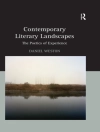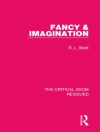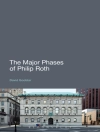This book comprises eleven essays by leading scholars of early nineteenth-century British literature and periodical culture. The collection addresses the many and varied links between politics and the emotions in Romantic periodicals, from the revolutionary decade of the 1790s, to the 1832 Reform Bill. In so doing, it deepens our understanding of the often conflicted relations between politics and feelings, and raises questions relevant to contemporary debates on affect studies and their relation to political criticism.
The respective chapters explore both the politics of emotion and the emotional register of political discussion in radical, reformist and conservative periodicals. They are arranged chronologically, covering periodicals from Pigs’ Meat to Blackwood’s Edinburgh Magazine and the Spectator. Recurring themes include the contested place of emotion in radical political discourse; the role of the periodical in mediating action and performance; the changing affective frameworks of cultural politics (especially concerning gender and nation), and the shifting terrain of what constitutes appropriate emotion in public political discourse.
Daftar Isi
Chapter 1. Politics, Emotions, and Romantic Periodicals.- Chapter 2. Time for a Change: Portable Passions in Popular Radical Periodicals of the 1790s.- Chapter 3. The Emotions, the Senses and Popular Radical Print Culture in the 1790s: The Case of
The Moral and Political Magazine.- Chapter 4. ‘A Well-Preserved Piece of Useless Antiquity’: The
Gentleman’s Magazine and Anti-Emotional National Identity.- Chapter 5. Military Periodicals, Discipline and Wartime Emotion in the 1790s.-Chapter 6. Loose Numbers: the Affect and Politics of Periodical Time in William Hone’s
The Every-Day Book.- Chapter 7. Jane Austen and the Politics of the Periodical Press.- Chapter 8.
Blackwood’s
Edinburgh
Magazine and the Politics of Wordsworthian Feeling.- Chapter 9. ‘Where personation ends and imposture begins’: John Wilson,
Noctes Ambrosianæ, and the Tory Populism of
Blackwood’s Edinburgh Magazine.- Chapter 10. Family News: Poland, South America, and the Porter Family.- Chapter 11. Emotional Rhetoric and Early Liberal Culture: The
Examiner, the
Spectator and the 1832 Reform Bill.
Tentang Penulis
Jock Macleod is Associate Professor of Literary Studies at Griffith University.
William Christie is Professor and Director of the Humanities Research Centre at the Australian National University. Peter Denney is Senior Lecturer in History at Griffith University.












